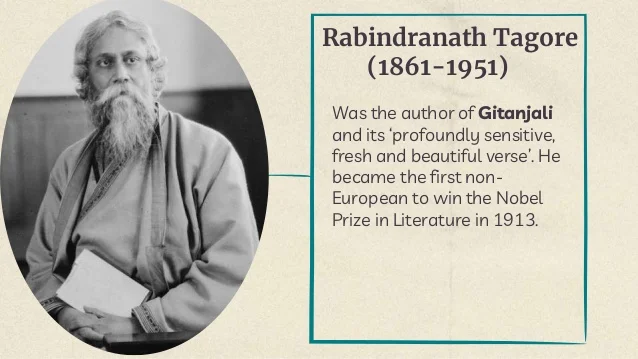How Should the Mind Be According to Rabindranath Tagore?
Rabindranath Tagore, the Nobel laureate poet and philosopher, envisioned a mind that transcends boundaries, embraces creativity, and seeks harmony with the universe. His works, from the soul-stirring Gitanjali to the profound essays in Sadhana, offer timeless insights into cultivating a liberated and enlightened mind. In a world often divided by dogma and fear, Tagore’s philosophy remains a beacon for personal and collective growth. So, how should the mind be according to Tagore?

A Fearless and Free Mind
Tagore’s iconic poem, “Where the Mind is Without Fear,” captures his vision of a mind unshackled by fear or prejudice. He writes, “Where the mind is without fear and the head is held high / Where knowledge is free.” For Tagore, a free mind is one that questions rigid traditions and societal norms. It rejects narrow-mindedness, whether imposed by colonial rule or cultural dogma.
To cultivate such a mind, Tagore urged individuals to embrace open-mindedness and courage. In today’s context, this means challenging biases, whether about race, religion, or ideology, and fostering a mindset that welcomes diverse perspectives. A fearless mind, according to Tagore, is the foundation of personal liberty and societal progress.
A Creative and Imaginative Mind
As a poet, playwright, and composer, Tagore saw the mind as a canvas for creativity. His own works, including over 2,000 songs and countless poems, reflect the power of imagination. He believed that a creative mind not only produces art but also finds innovative solutions to life’s challenges.
Tagore encouraged nurturing imagination through exposure to arts and nature. He wrote, “The highest education is that which does not merely give us information but makes our life in harmony with all existence.” By engaging with poetry, music, or even the beauty of a sunrise, we awaken the mind’s creative potential, making it vibrant and dynamic.
A Mind Connected to the Universal
Tagore’s philosophy was deeply universalist. In The Religion of Man, he described the mind as a bridge to the infinite, capable of connecting with nature and humanity. He saw the individual mind as part of a larger cosmic consciousness, fostering empathy and unity.
To align with this vision, Tagore advocated for a mind that is empathetic and inclusive. Simple practices like spending time in nature or engaging in acts of kindness can help us feel this connection. For Tagore, a mind in harmony with the universe is one that transcends ego and embraces the shared essence of all life.
A Reflective and Growing Mind
Introspection was central to Tagore’s idea of the mind. In Sadhana, he emphasized self-awareness as a path to spiritual growth. A reflective mind, according to Tagore, constantly evaluates its thoughts and actions, striving for inner peace and wisdom.
Tagore’s own life exemplified this. He often retreated to nature to meditate and write, finding clarity through solitude. For us, this could mean journaling, meditating, or simply pausing to reflect on our values. A mind that grows through introspection is resilient and purposeful.
A Mind Nurtured by Holistic Education
Tagore was a pioneer in education, founding Visva-Bharati University to nurture free-thinking minds. He criticized rote learning, which he believed stifled creativity, and instead promoted a holistic approach that combined arts, sciences, and nature.
For Tagore, education should liberate the mind, not confine it. He wrote, “The highest education is that which brings us into direct contact with the world.” Parents and educators can adopt this by encouraging curiosity and creativity over memorization, ensuring the mind remains open and engaged.
Conclusion: Embracing Tagore’s Vision
Tagore’s vision of the mind—fearless, creative, universal, reflective, and nurtured by holistic learning—is a blueprint for personal fulfillment and societal harmony. In an era of information overload and division, his ideas remind us to cultivate a mind that is free yet connected, imaginative yet grounded.